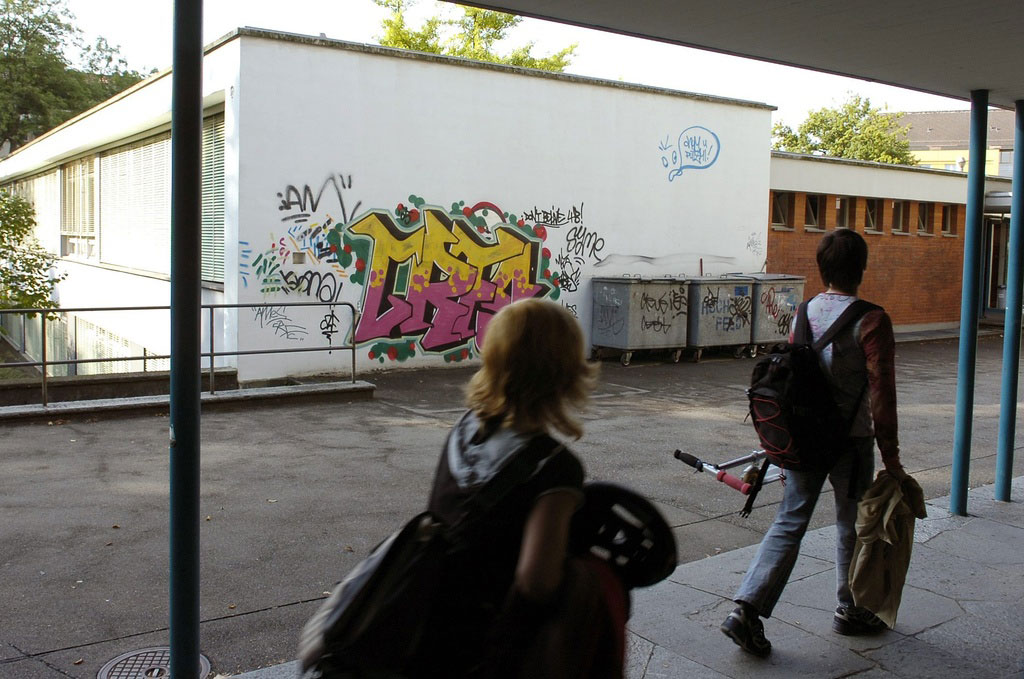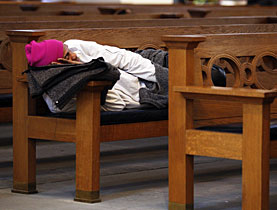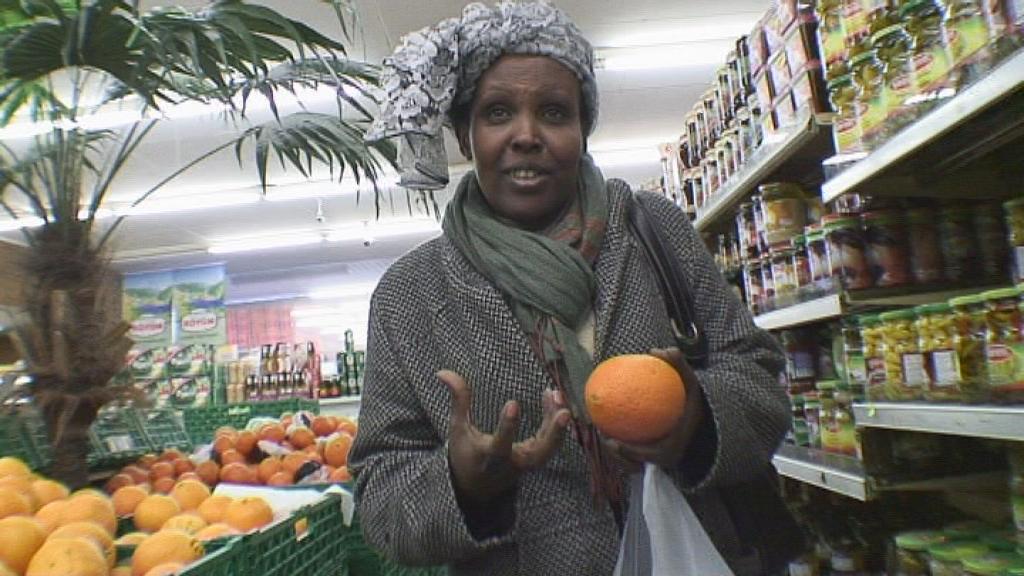Protection of domestic workers set to increase

Around 87 million children are employed as domestic workers worldwide, often overworked, underpaid and unprotected, in conditions akin to slavery.
But their plight may be changing. Delegates at the International Labour Organization (ILO) in Geneva are currently finalising talks on a new international legal instrument to radically improve the protection of domestic workers, both young and old.
“I started working when I was seven,” Evelin, a Peruvian teenage domestic worker told an audience in Geneva on Tuesday. “I felt invisible. I didn’t think I was worth very much but now I know I’m worth a bit.”
Together with other child domestic workers from Peru and Togo, she was taking part in a special event organised by canton Geneva, Human Rights Watch and other children’s rights organisations.
For the past ten years Human Rights Watch has been carrying out investigations in 16 countries into child domestic workers.
“Children who start work at the age of seven, sexual harassment, beatings, low wages and long hours – these are things we have heard from kids all around the world,” explained Jo Becker, director of Human Rights Watch’s children’s rights advocacy section.
One of the main problems is that they work in private homes often hidden from the public eye and are at risk of an array of abuses, said Becker.
Jean Zermatten, vice-chair of the United Nations Committee on the Rights of the Child, concurred: “Parents living in extreme poverty send children to work in homes where they are taken in and exploited completely. This often happens in extended families – aunts or uncles.”
And in many countries, even those with good labour laws, domestic workers are not seen as real workers so there is no minimum wage, proper rest or set hours, added Becker.
Mood change
But children’s rights and domestic worker activists sense change in the air.
Since the beginning of June, government, worker and employer representatives from around the world have been negotiating in Geneva a new legal instrument on decent work conditions for domestic workers.
Activists are particularly excited by early decisions such as a majority vote by governments to come up with a legally binding treaty, agreement to set a minimum age limit and protection of child domestic workers’ educational rights.
“There are firm commitments from governments, as there are so many abuses against domestic workers and it’s really the last sector of work where there are unacceptable slave-like conditions,” said Neha Misra from the American Center for International Labor Solidarity.
Swiss negotiation
Switzerland supports the idea of a new norm, explains Jean-Jacques Elmiger, chief negotiator with the State Secretariat for Economic Affairs (Seco).
“We are open to a possible instrument that could be a convention and/or a recommendation. That being said, we would have preferred to have discussed the idea and content first, and then the form, to avoid the endless negotiations,” he told swissinfo.ch.
While seeking flexibility, Switzerland wants better protection for migrant domestic workers, a minimum age limit, the guarantee of fair working conditions and possible inspections, he explained.
But there is still a long way to go and ideological differences between worker and employer delegations persist.
“I don’t like the treaty,” said Henrik Schilder, a Danish employers’ representative. “It’s too detailed and put together by people who have never drawn up a contract and know little of what’s going on.”
Talks will continue this week to finalise a draft treaty text, which will be
fine-tuned over the next 12 months. All being well, the new instrument will be approved by ILO members in 2011, followed by a ratification process.
National domestic workers
Although figures are hard to come by, there are an estimated 50,000 unregistered domestic employees in Switzerland.
“But we feel there are at least double that amount,” said Giangiorgio Gargantini, specialist on domestic workers at the Geneva-based Interprofessional Workers’ Union.
He has been involved in a two-year consultation process in Switzerland regarding a federal employment contract for domestic workers, which has just concluded.
The draft text is due to be officially presented towards the end of this year. Canton Geneva is the only Swiss region to currently offer a model contract at present.
“On the whole we are happy,” said Gargantini. “It’s already a step forward that there is recognition of domestic workers as an employment sector, but the text is very minimalist.”
At the same time, he welcomed international progress on domestic workers.
“[An international treaty] will certainly make a difference here,” he said. “It will make it very hard for certain employment sectors to oppose a contract in Switzerland.”
Simon Bradley in Geneva, swissinfo.ch
One in eight employees in Switzerland has a salary considered to be low, according to the Federal Statistics Office.
These jobs concern 320,000 people – 70 per cent of them women – who earn less than SFr3,783 ($3,628) per month for a 40-hour working week.
Over the past decade, the percentage of low salaries among the workforce has only varied slightly, decreasing from 11.2 per cent to 10.2 per cent. These wages are often paid in the hotel and retail industries, and in six out of ten firms with fewer than 50 employees.
Nearly half of those on low salaries work fulltime – 80 per cent of them women. Foreigners are also more likely to be among the lowest paid workers.
Only one in 22 people – less than four per cent of the working population – is considered to belong to the working poor category, which takes into account household income. More than 80 per cent of low-salary earners have another source of revenue to supplement their wages, such as working partners.
In 2004 Geneva became the first and only Swiss canton to create a model contract for full-time and part-time workers in the domestic economy. It also introduced a “service cheque” system under which a social organisation calculates the social charges on the salary paid to the domestic worker and declares the salary by means of service cheques. Last year 4,000 such contracts were officially registered in Geneva.

In compliance with the JTI standards
More: SWI swissinfo.ch certified by the Journalism Trust Initiative






You can find an overview of ongoing debates with our journalists here . Please join us!
If you want to start a conversation about a topic raised in this article or want to report factual errors, email us at english@swissinfo.ch.